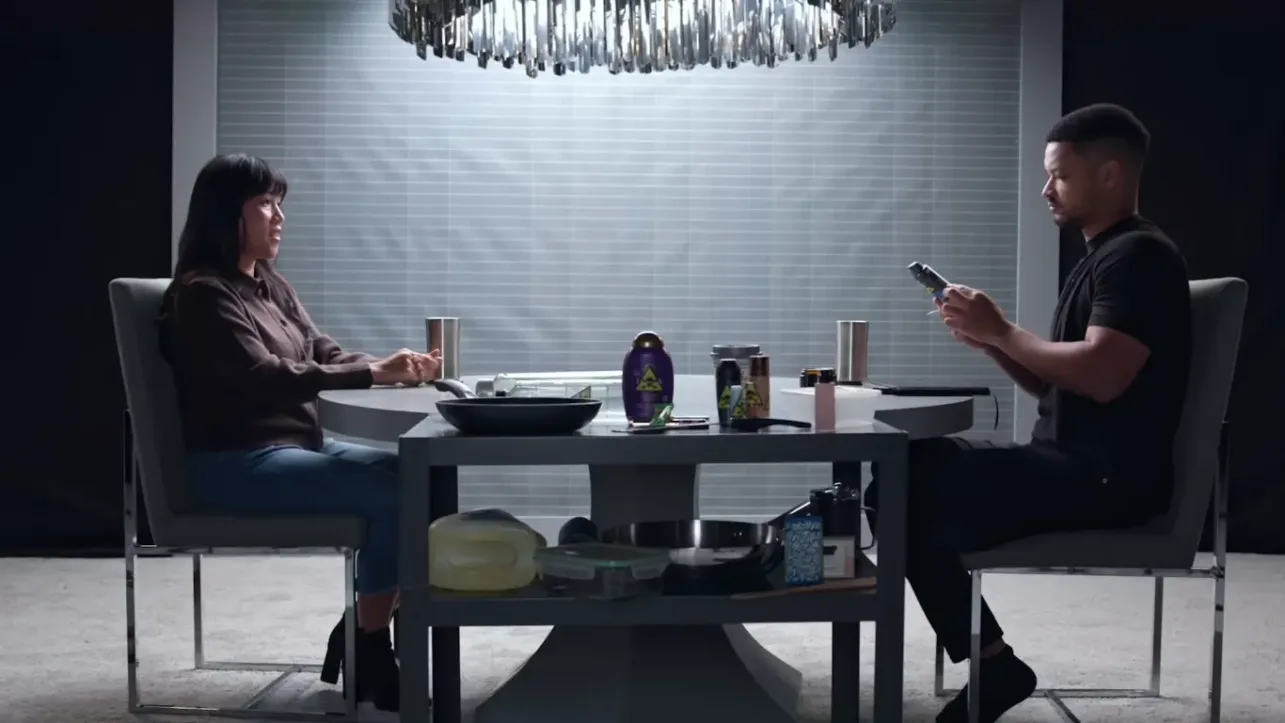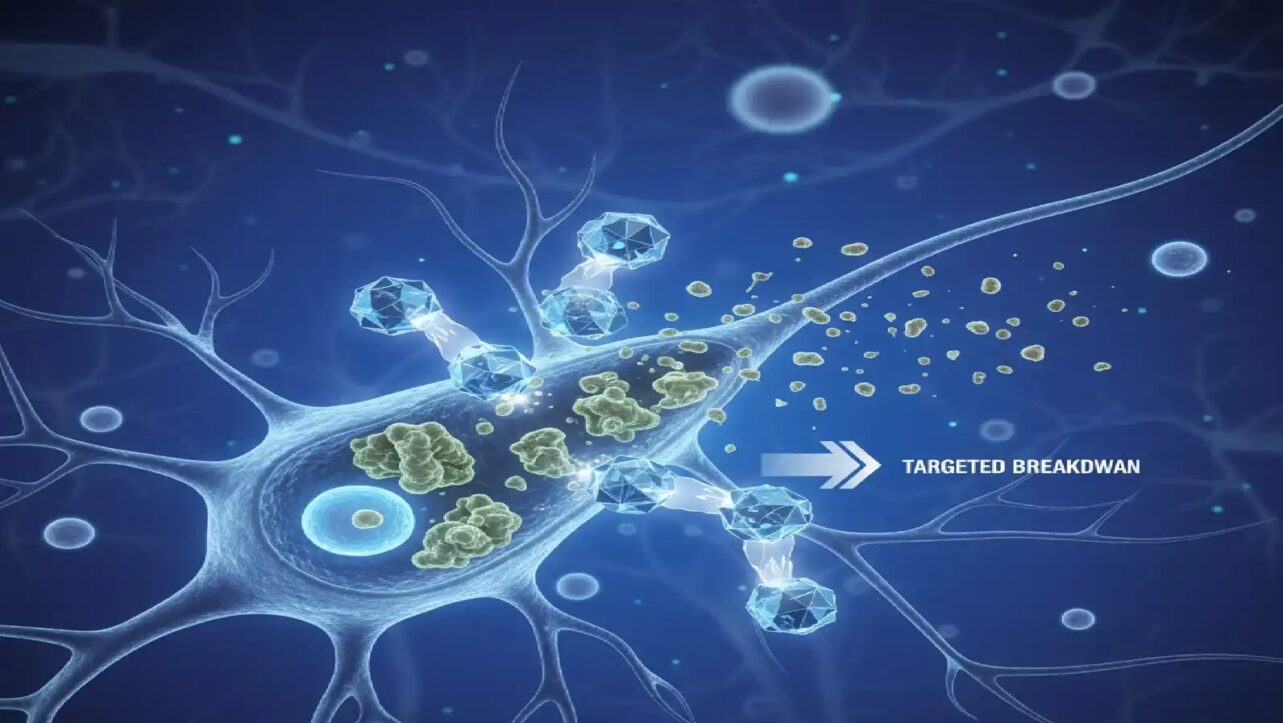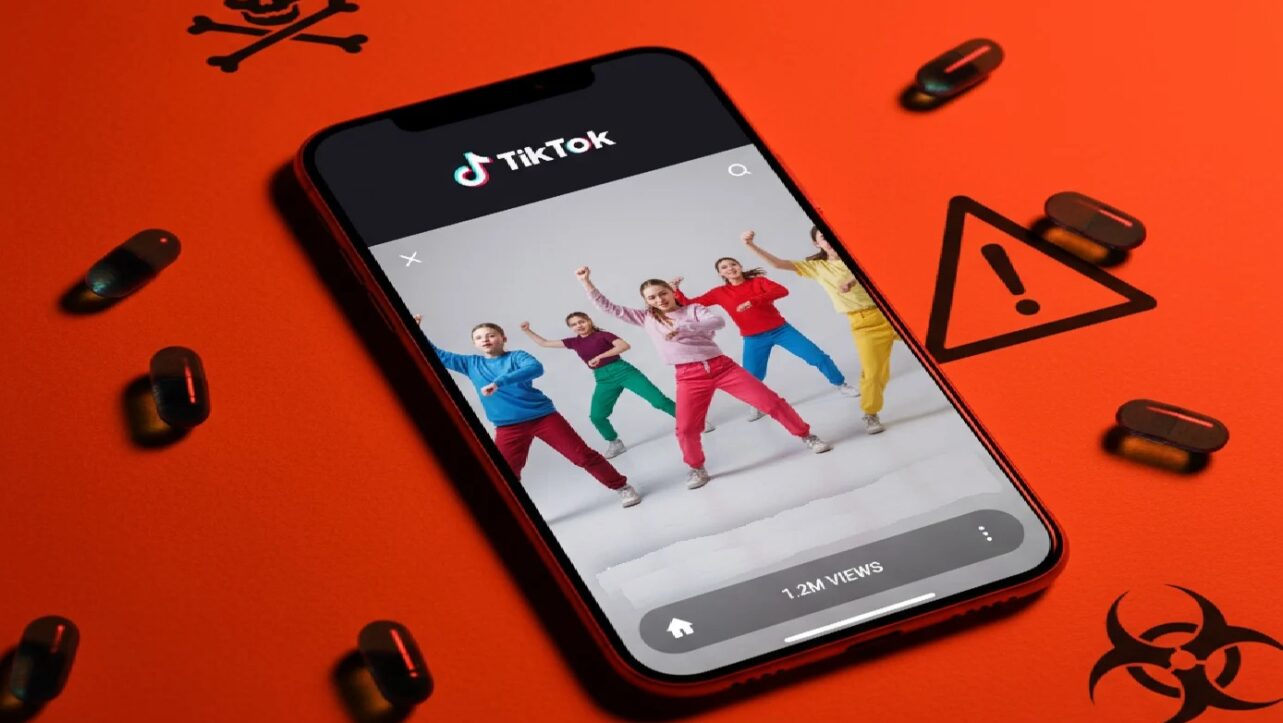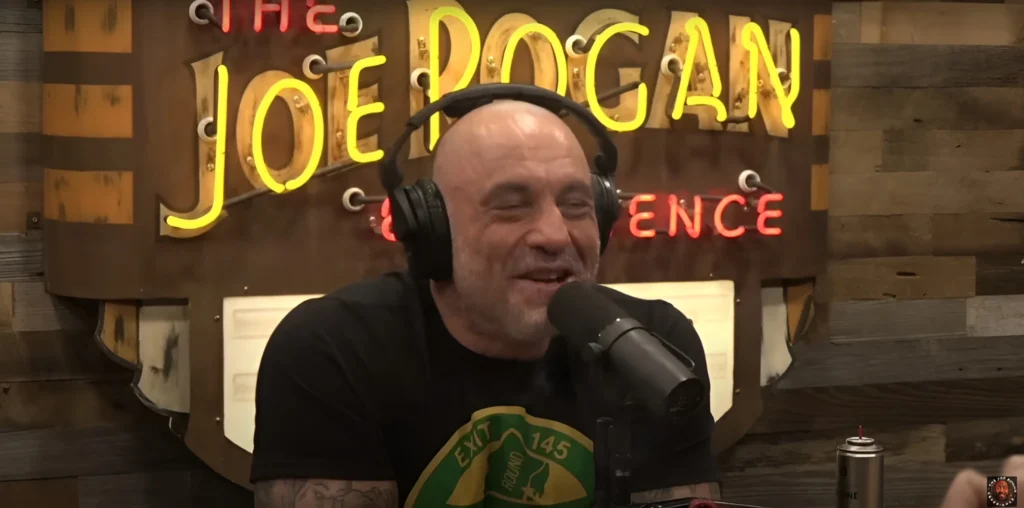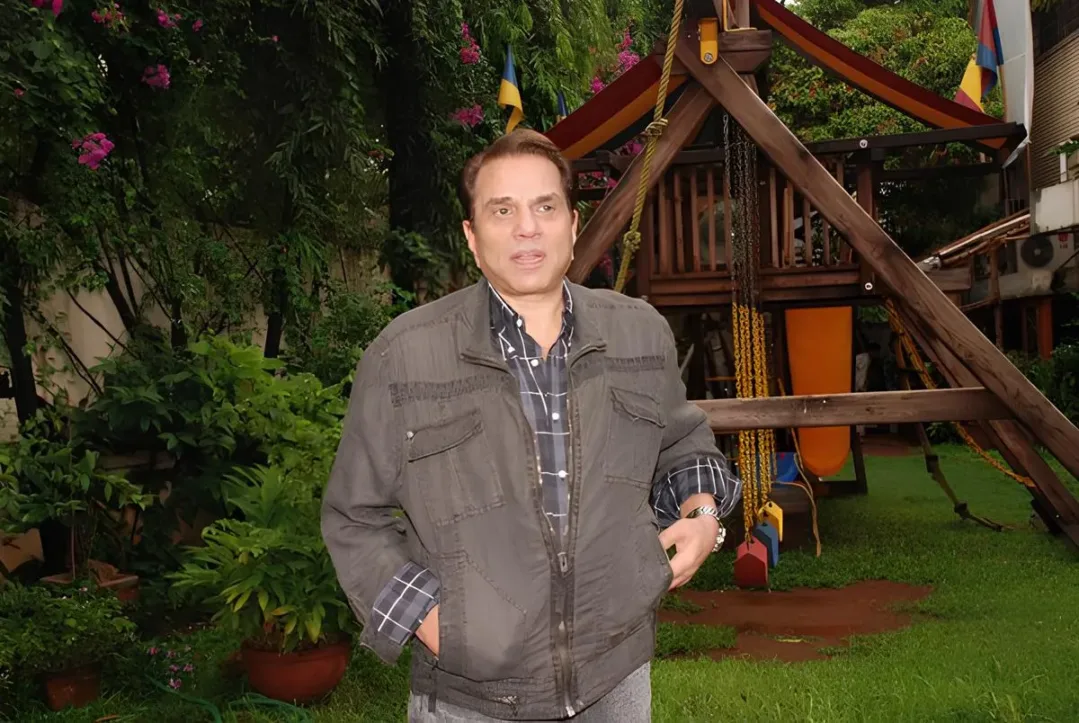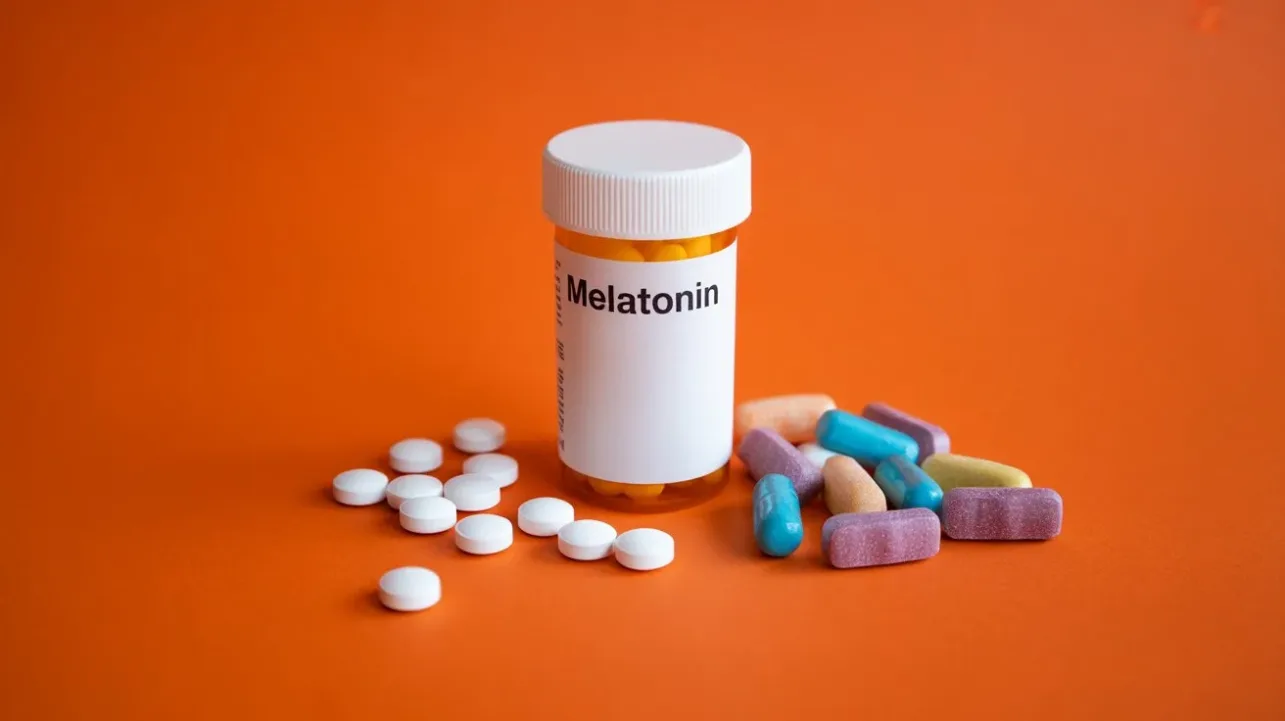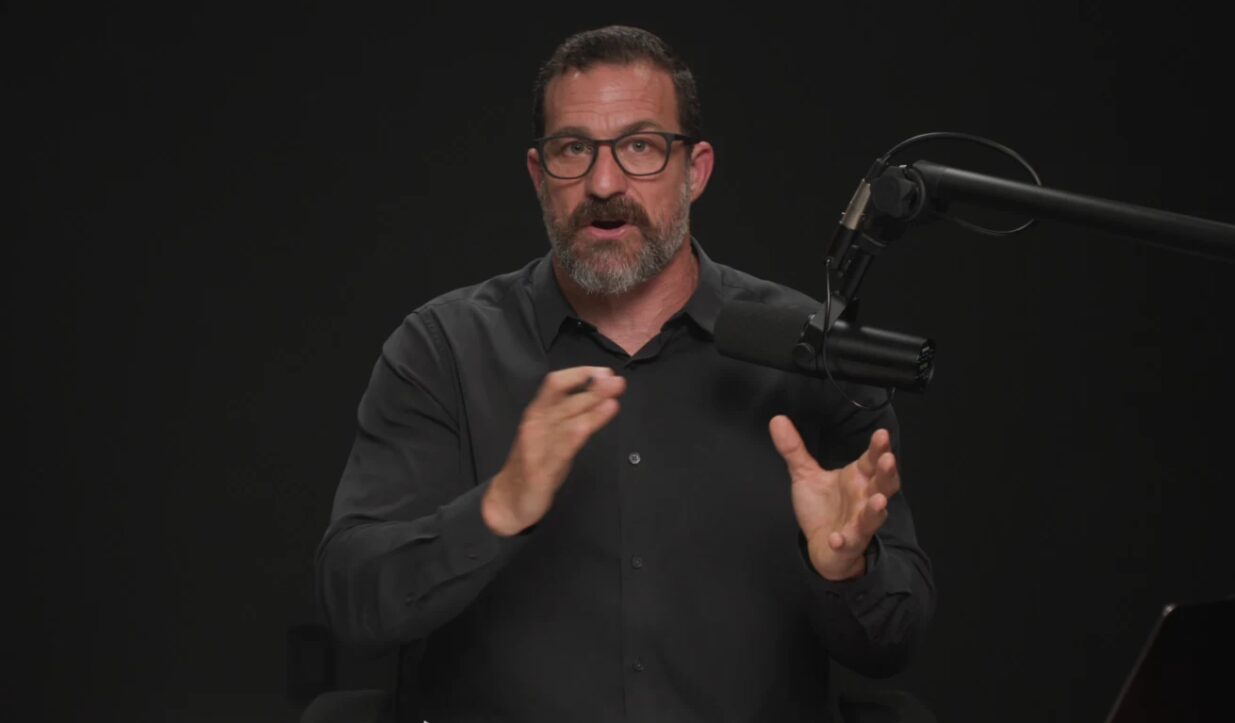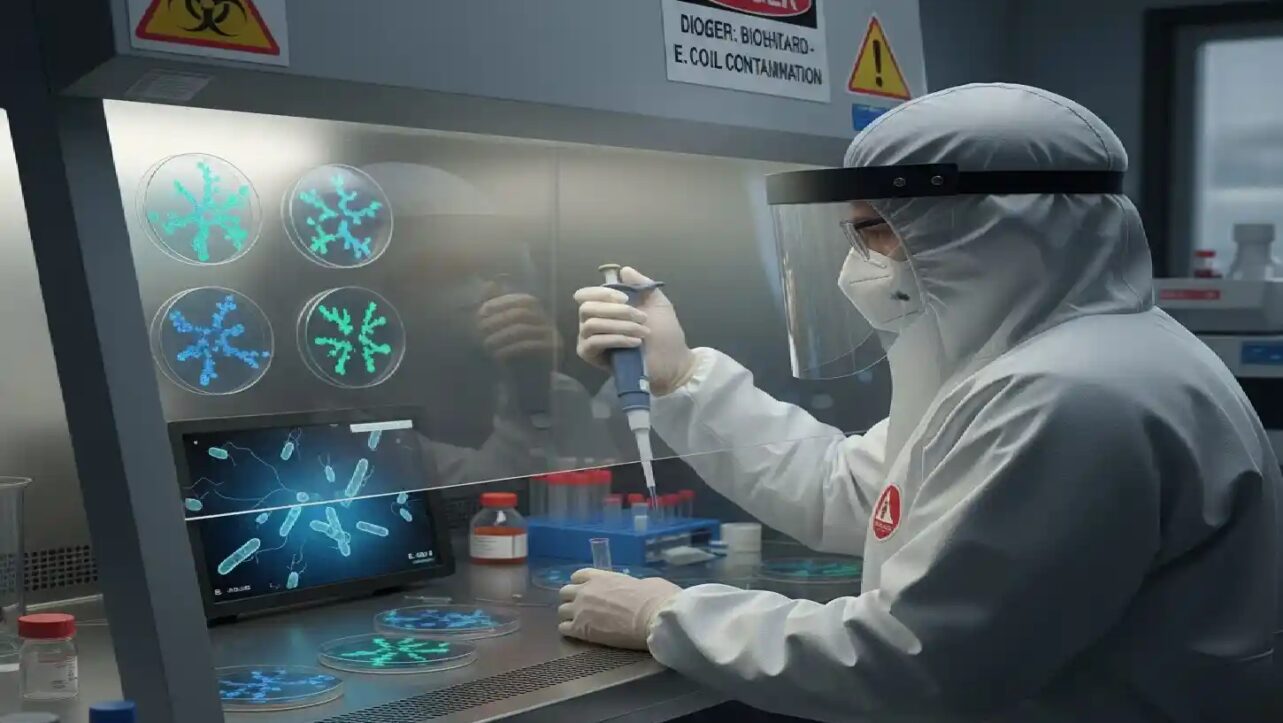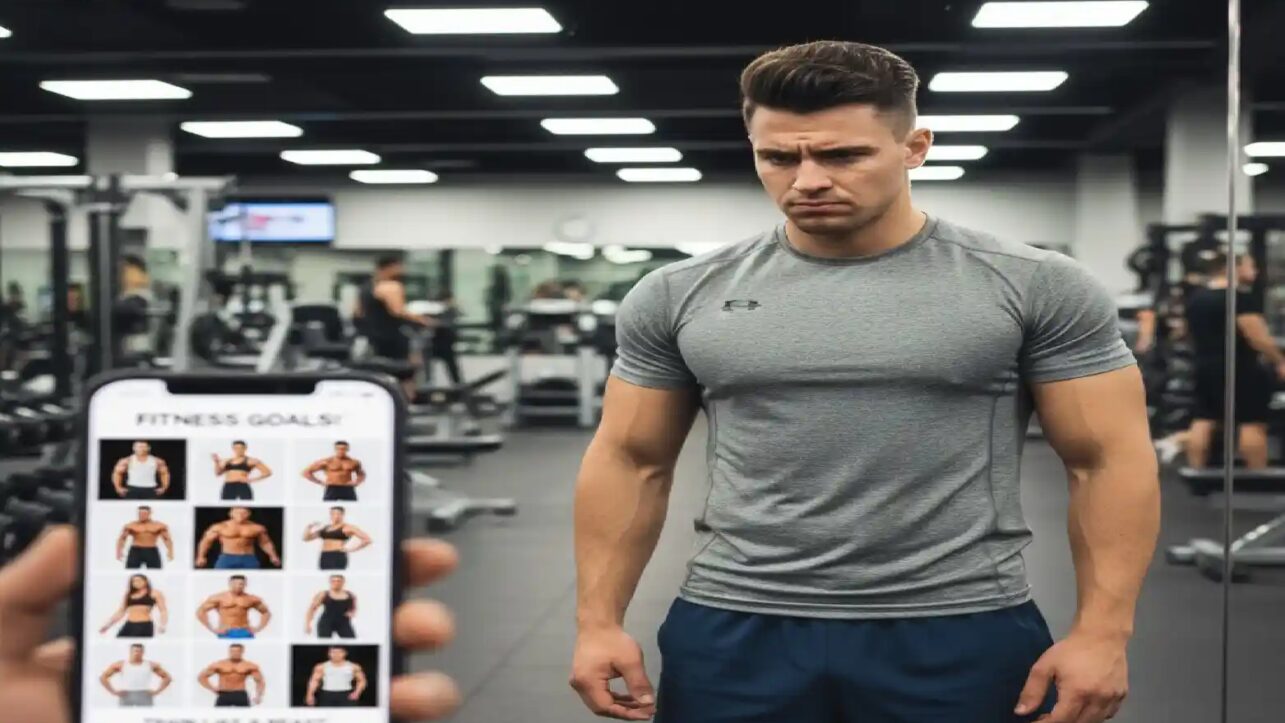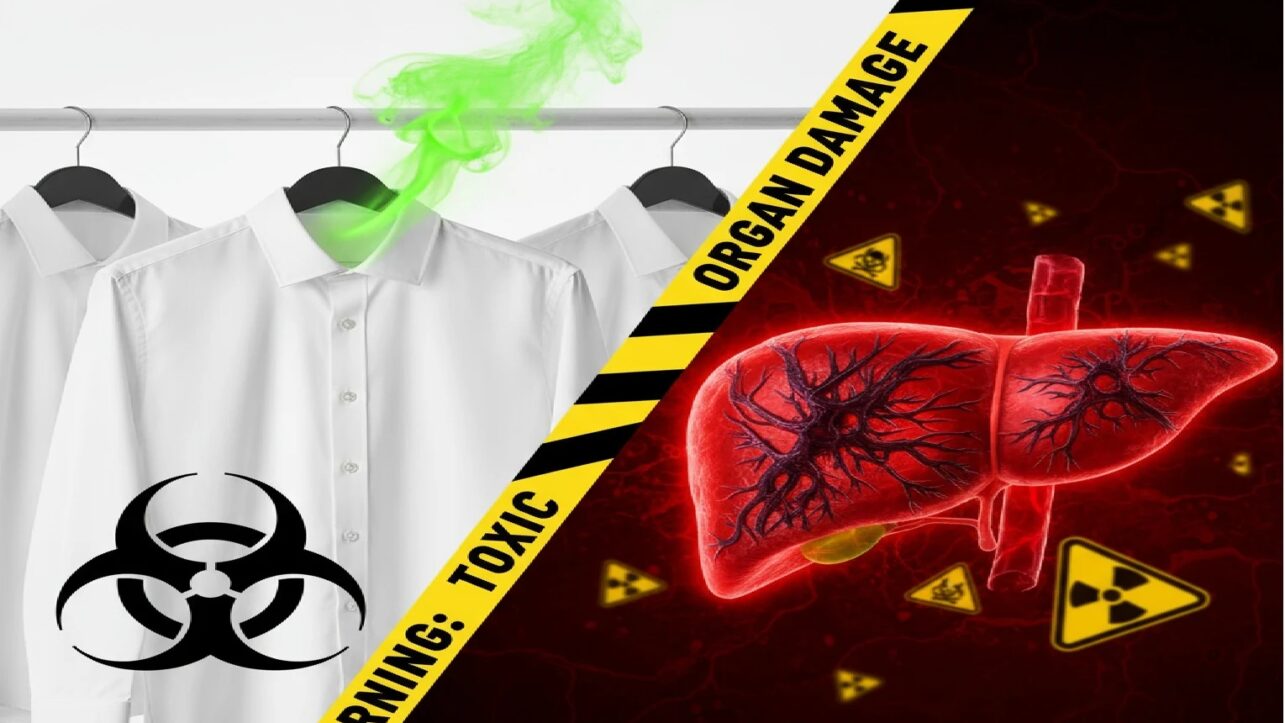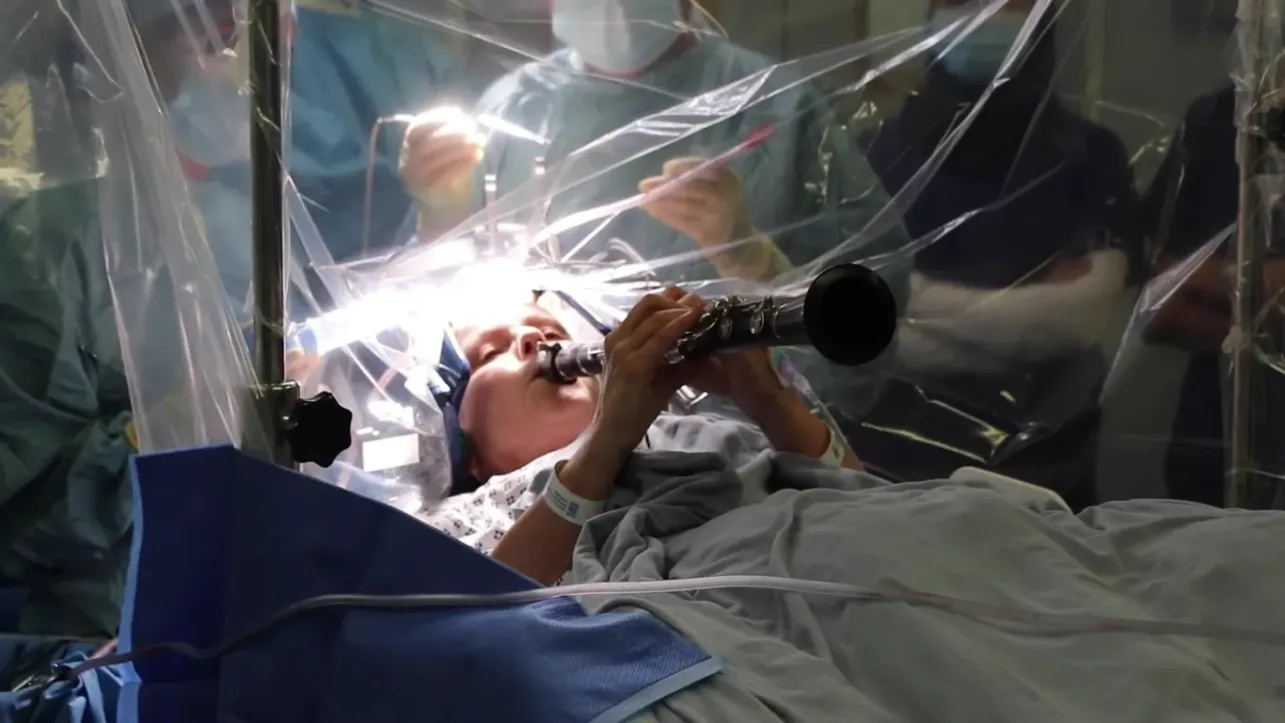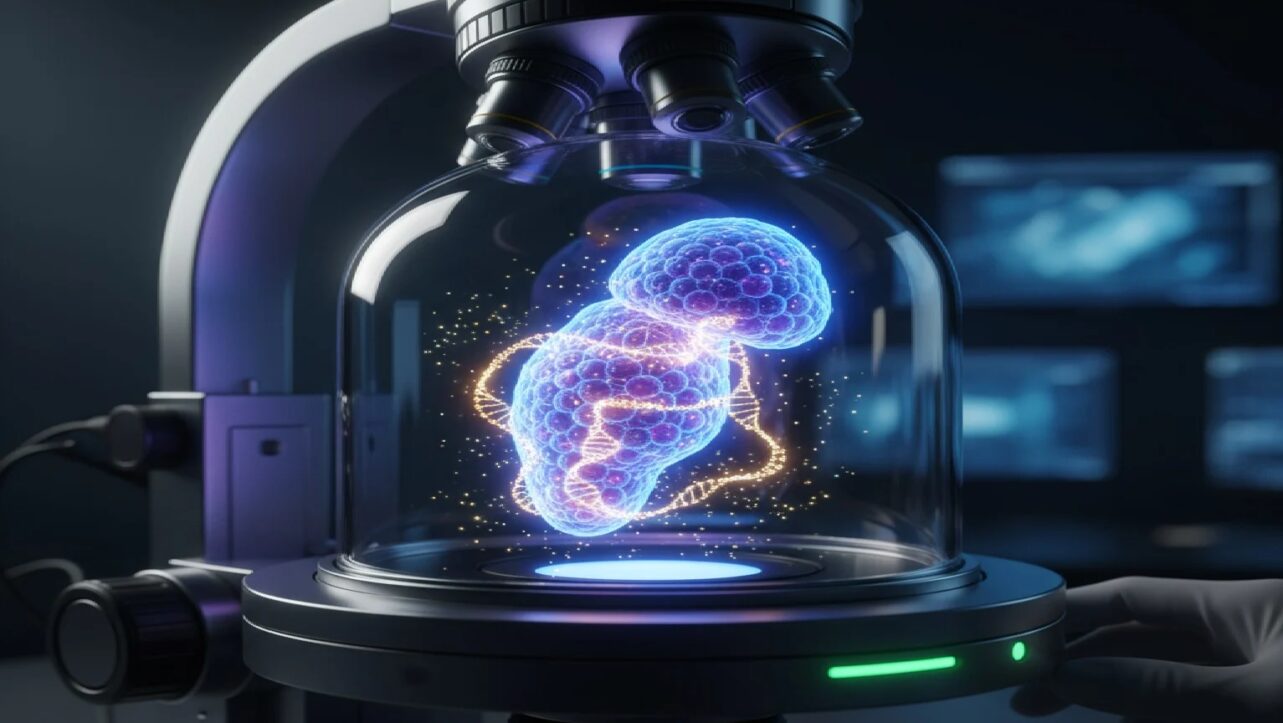A viral podcast episode featuring environmental toxicologist Dr. Yvonne Burkart has sent millions of women scrambling to check the ingredient lists on their beauty products, revealing a disturbing truth: the creams, shampoos, and cosmetics we use daily may contain cancer-causing chemicals, hormone disruptors, and reproductive toxins.
The October 16, 2025 Podcast episode of The Diary of a CEO—one of the world’s most-watched podcasts with over 6 million subscribers—has become the platform’s most replayed segment this month, with the “toxic beauty products” discussion going massively viral across social media.
The timing couldn’t be more alarming: just five days after the podcast aired, CNN published an investigative report confirming that makeup, shampoos, and hair care products still contain potentially toxic chemicals despite years of industry promises to clean up their act.
The Chemical Cocktail in Your Vanity
Dr. Burkart, a former Environmental Protection Agency scientist, dropped bombshell after bombshell during her conversation with host Steven Bartlett. Her message was blunt and terrifying: “Companies are not required to prove their products are safe before selling them. You’re essentially the guinea pig“.
The revelations have sparked a global reckoning with the beauty industry, forcing consumers to confront an uncomfortable truth: we’ve been trusting brands with our health without demanding proof of safety.
The Most Dangerous Products in Your Home
Hair Straighteners and Relaxers:
A staggering 50% of hair straightening products contain formaldehyde, a known carcinogen linked to leukemia and nasopharyngeal cancer. The chemical is often disguised under names like “methylene glycol” or “formalin” on ingredient labels, deliberately obscuring its presence from consumers.
Research has shown that products targeting Black women have historically included more harmful ingredients, revealing a disturbing pattern of inequality in beauty product safety.
“Free-From” Marketing Deception:
Perhaps most disturbing is Dr. Burkart’s revelation about “clean beauty” marketing. Products labeled “paraben-free,” “sulfate-free,” or “toxin-free” can still be packed with chemicals that lack any safety data whatsoever.
“The ‘free of’ movement gave companies a free pass to use replacement chemicals that have never been tested,” she warned.
Fragranced Products:
In the full episode (from November 2024), Dr. Burkart explained that fragrance is essentially “code” for endocrine-disrupting phthalates. When you see “fragrance” or “parfum” on an ingredient list, manufacturers legally don’t have to disclose what’s actually in it—and it often contains known carcinogens, endocrine disruptors, and “the most potent allergens known to man”.
The Numbers Are Terrifying
A comprehensive analysis of beauty and personal care products revealed:
- 4% of products contain “high hazard” chemicals
- 24% of chemicals used lack sufficient safety data—meaning companies literally don’t know if they’re safe
- Thousands of untested compounds are being applied directly to our skin daily
The Health Consequences
Dr. Burkart’s podcast highlighted mounting scientific evidence linking everyday beauty products to serious health conditions:
Hormonal Disruption:
Phthalates, parabens, and synthetic fragrances act as endocrine disruptors, interfering with hormone function. This can lead to:
- Early puberty in girls
- Reduced fertility
- Thyroid dysfunction
- Increased breast cancer risk
The Breast Cancer Study:
In the full episode, Dr. Burkart revealed a groundbreaking study: Women without any history of breast cancer were asked to remove certain ingredients from their beauty products for just 28 days. Researchers measured breast cancer gene expression before and after. The results were shocking: after only 28 days of avoiding these chemicals, breast cancer gene expression dropped significantly.
The only lifestyle change? Removing toxic ingredients from skincare, deodorant, and shampoo.
Cancer Links:
Formaldehyde in hair products, DEA in moisturizers, and coal tar in hair dyes have all been classified as probable or known carcinogens.
Reproductive Harm:
Chemicals in nail polish, perfumes, and hair sprays have been linked to miscarriage, birth defects, and reduced sperm quality.
Respiratory Problems:
Aerosol products, particularly hair sprays and deodorants, release volatile organic compounds (VOCs) that can trigger asthma and lung damage.
The Fragrance Epidemic
Dr. Burkart was particularly passionate about fragrance chemicals, calling them “the new secondhand smoke”. When you spray a fragrance, the chemicals volatilize—they become gases that you smell. But they also bind to dust in your home and remain in the air long after you’ve applied them.
“If you’re not regularly dusting, mopping, sweeping, and vacuuming, you’re becoming re-exposed,” she explained. This is especially dangerous for babies and young children crawling on floors, inhaling the dust particles containing these chemicals.
What Consumers Must Do Now
1. Read Labels Obsessively:
Avoid products containing:
- Parabens (methylparaben, propylparaben)
- Phthalates (often hidden under “fragrance”)
- Formaldehyde and formaldehyde-releasing preservatives
- Sodium lauryl sulfate (SLS)
- Synthetic fragrances
- Triclosan
- Oxybenzone
2. Look for the Word “Fragrance”:
According to Dr. Burkart, the easiest way to weed out toxic products is to avoid anything listing “fragrance” or “perfume” in the ingredients. This single word can hide dozens of untested, potentially harmful chemicals.
3. Question “Free-From” Claims:
“Free-from” doesn’t automatically mean safe. Manufacturers often replace banned chemicals with untested alternatives that may be just as dangerous.
4. Choose Essential Oils Over Synthetic Fragrance:
Dr. Burkart recommends looking for products scented with essential oils rather than synthetic fragrance, as these provide transparency about what you’re actually applying.
5. Minimize Product Use:
Dr. Burkart’s golden rule: “The best cosmetic is the one you don’t use.” Reduce the number of products in your daily routine.
6. Switch to Unscented:
Stop buying scented candles, air fresheners, laundry detergents, fabric softeners, and cleaning products. The fragrance industry has exploded in recent years, and we’re now exposed to these chemicals constantly.
The Industry Response
The beauty industry insists its products are safe, pointing to regulatory approvals and decades of use. But as Dr. Burkart pointed out, regulatory approval doesn’t equal safety—it simply means a product met minimum legal requirements, which vary wildly by country.
In the US and Europe, manufacturers are not required to test products for safety before releasing them to market. We are quite literally the guinea pigs in this unregulated experiment.
Major brands have pledged to reformulate products, but progress remains slow. Meanwhile, millions of people continue applying potentially dangerous chemicals daily.
The Viral Impact
Since the podcast aired on October 16, social media has exploded with people sharing their “product purge” videos, tossing out dozens of beauty items. The hashtag #ToxicBeauty has gained millions of views across platforms.
The Diary of a CEO episode has racked up millions of views, making it one of the platform’s most impactful health discussions of 2025. The “Most Replayed Moment” focusing specifically on toxic beauty products has been re-released as a standalone 24-minute episode due to massive demand.
Dr. Burkart’s Personal Mission
“I’m really angry that people have to suffer with cancer because it’s so preventable,” Dr. Burkart said emotionally during the full episode. Her passion stems from years of scientific research showing clear links between everyday products and serious diseases—links that the beauty industry has fought to obscure or minimize.
What Regulators Should Do
Consumer advocacy groups are demanding:
- Mandatory pre-market safety testing
- Transparent ingredient disclosure, especially for “fragrance”
- Ban on known carcinogens and endocrine disruptors
- Stricter penalties for misleading “clean beauty” marketing
- Regular market surveillance and testing
The Bottom Line
Dr. Yvonne Burkart’s viral Diary of a CEO appearance has pulled back the curtain on the beauty industry’s dirty secret: we genuinely don’t know if many products are safe because they’ve never been properly tested.
The breast cancer study she cited—showing measurable drops in cancer gene expression after just 28 days of avoiding certain beauty product ingredients—should be a wake-up call.
The most radical act of self-care in 2025 might be throwing out half your beauty products and embracing simplicity.
After all, no lipstick is worth your health, and no fragrance is worth your hormones.
Watch the Full Episode:
“No.1 Toxicologist: These Products Were Making Me Sick!” – The Diary of a CEO with Dr. Yvonne Burkart (full episode from November 2024)
“Most Replayed Moment: Are Your Household And Beauty Products Secretly Toxic?” – October 16, 2025 (24-minute segment)
About The Diary of a CEO:
Hosted by entrepreneur Steven Bartlett, The Diary of a CEO is one of the world’s most-watched podcasts, featuring conversations with experts, celebrities, and thought leaders on business, health, and culture. The show reaches millions of viewers weekly across YouTube, Spotify, and Apple Podcasts.

